CMN 414
Interpersonal Communication

1. Course Description
In this course, students will learn interpersonal communication theories and participate in a variety of individual and group exercises designed to develop the skills necessary for effective interpersonal communication. Students will learn how member diversity and communication medium affect group processes such as problem solving, decision making, resolving conflict, and negotiating.
Last Revised
Prerequisites
CMN 100 or CMN 114 or CMN 124 or CMN 200 or CMN 201 or CMN 207 or CMN 279 or CMN 300 or CMN 373 or Direct Entry
Delivery
Lecture: 2 hours, Lab: 1 hour
2. Course Objectives & Learning Outcomes
- To develop interpersonal skills necessary for effective management
- To apply principles derived from interpersonal communication theory to small group situations
- To demonstrate an understanding of the ways gender, culture, personality and the communication medium affect group processes
3. Topics Covered
- Facilitating team processes
- Verbal and nonverbal communication
- Listening and questioning
- Cultural influences
- Gender dimensions: language, leadership, roles
- Personality types
- Group leadership
- Managing team pressures and conflicts
- Virtual teamwork
4. Teaching Method
Role Plays
A variety of role-plays, individual presentations, and in-class group discussions will be analyzed and evaluated by the instructor and students. Students must be prepared both to give and receive fairly detailed feedback regarding individual performance
Graded Assignments
-
- In-class Participation
- Oral Presentations
- Three Written Analyses
- Mid-Term test
5. Course Materials
Engleberg, I. N., & Wynn, D. R. (2017). REVEL for Working in Groups: Communication Principles and Strategies. Access Card, 7th edition. Pearson. ISBN-10: 0134402324, ISBN-13: 9780134402321.
Print Alternative
Engleberg, I. N., & Wynn, D. R. (2017). Working in Groups: Communication Principles and Strategies. Books a la Carte, 7th edition. Pearson. ISBN-10: 0134415523 • ISBN-13: 9780134415529.
Supplementary reading may be assigned by the instructor
6. Policy
6.1 University Policies
Students are required to adhere to all applicable university policies found in their Online course shell in D2L and the Course Outline Policies.
6.2 Print and Digital Copying Guidelines:
Toronto Metropolitan University complies with Canada’s Copyright Act which protects both creators/owners and users of copyrighted materials. Students should familiarize themselves with TMU Copyright policies and procedures, and contact the Copyright and Scholarly Engagement Librarian at copyrt@torontomu.ca for questions, concerns and clarification of the copyright rules.
6.3 Turnitin.com
Turnitin.com is a plagiarism prevention and detection service to which Toronto Metropolitan University subscribes. It is a tool that helps instructors determine the similarity between student work and the work of other students who have submitted papers to the site (at any university), Internet sources, and a wide range of books, journals, and other publications. While it does not contain all possible sources, it gives instructors some assurance that students’ work is their own. No decisions are made by the service; it generates an “originality report,” which instructors must evaluate to judge whether something is plagiarized.
Students agree by taking this course that their written work will be subject to submission for textual similarity review to Turnitin.com. All submitted papers will be included as source documents in the Turnitin.com reference database solely for the purpose of comparing the similarity of such papers. Use of the Turnitin.com service is subject to the terms-of-use agreement posted on the Turnitin.com website. Students who do not want their work submitted to this plagiarism detection service must, by the end of the second week of class, consult with their instructor to make alternative arrangements. Even when an instructor has not indicated that a plagiarism detection service will be used, or when a student has opted out of the plagiarism detection service, if the instructor has reason to suspect that an individual piece of work has been plagiarized, the instructor is permitted to submit that work in a non-identifying way to any plagiarism detection service.
6.4 Email Communication
Toronto Metropolitan University requires that any official or formal email communication from students be sent from their official Toronto Metropolitan University electronic accounts.
6.5 Video and Audio Recording
No video or audio recording is permitted in class without the express permission of the instructor.
7. Learning Management System
Toronto Metropolitan University supports Brightspace by D2L as its official Learning Management System. University Policies governing Brightspace have been documented at the Courses @ Toronto Metropolitan University Privacy and Security website.

